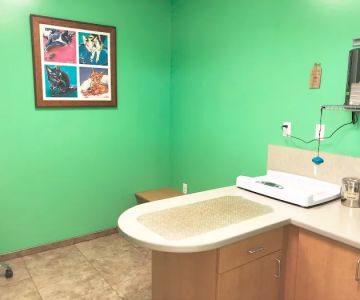What Education Does a Veterinarian Need?
- 1. Overview of the Veterinary Profession
- 2. The Path to Becoming a Veterinarian: An Educational Journey
- 3. Educational Requirements Before Veterinary School
- 4. Veterinary School: What to Expect
- 5. Clinical Experience and Internships in Veterinary Education
- 6. Specialization and Continuing Education for Veterinarians
- 7. Real-Life Example: My Experience with Veterinary Education
- 8. Why Education Is Critical for Veterinarians
1. Overview of the Veterinary Profession
Veterinarians play a vital role in animal health, providing care and treatment to animals ranging from household pets to livestock. But what does it take to become a veterinarian? A veterinarian's journey is filled with rigorous education, hands-on training, and years of dedication. In this article, we’ll explore the educational path that aspiring veterinarians must take to succeed in this rewarding profession.
2. The Path to Becoming a Veterinarian: An Educational Journey
Becoming a veterinarian requires a significant investment of time and effort. Unlike many other medical fields, veterinary medicine is uniquely challenging due to the diversity of species veterinarians work with. So, what education does a veterinarian need? The educational path to becoming a veterinarian typically involves at least 8 years of post-secondary education, combining undergraduate studies, veterinary school, and clinical training. Let’s break it down step by step.

110 Marketside Avenue #203, Ponte Vedra Beach, FL 32081, USA
See Details3. Educational Requirements Before Veterinary School
Before attending veterinary school, you must complete a bachelor's degree. Most veterinary schools require applicants to have a strong foundation in biology, chemistry, physics, and other sciences. While there’s no strict major requirement, aspiring veterinarians often choose pre-veterinary studies, animal science, or biology as their field of study. During this time, you’ll also need to gain hands-on experience working with animals, either through internships, volunteer work, or part-time jobs in animal care settings. This practical experience is essential not only for your application but also for developing the skills you'll need as a veterinarian.
4. Veterinary School: What to Expect
Once you have completed your undergraduate studies and gained relevant experience, the next step is to attend veterinary school. Veterinary schools are highly competitive, and you’ll need strong grades and relevant experience to be admitted. Veterinary school typically lasts for 4 years and focuses on both theoretical learning and practical skills. During this time, you’ll study subjects like animal anatomy, pharmacology, pathology, surgery, and diagnostics. You’ll also begin working directly with animals in a clinical setting under the supervision of experienced veterinarians. This blend of classroom instruction and hands-on experience is crucial to becoming a skilled and knowledgeable veterinarian.
5. Clinical Experience and Internships in Veterinary Education
Veterinary education is not only about classroom learning. In fact, the clinical experience gained during veterinary school is arguably one of the most important parts of the training process. Many veterinary schools provide opportunities for internships, externships, or clinical rotations in various areas of veterinary care, such as emergency medicine, surgery, or small and large animal practice. These hands-on experiences give students the opportunity to apply their knowledge in real-world settings, working with real patients, and preparing them for the wide variety of cases they will encounter in their professional careers.
6. Specialization and Continuing Education for Veterinarians
After completing veterinary school, many veterinarians choose to specialize in a particular area of veterinary medicine, such as cardiology, dermatology, or oncology. Specialization requires additional years of training and certification but can lead to more focused and advanced career opportunities. Even after completing formal education, veterinarians must continue to learn. The field of veterinary medicine is constantly evolving with new technologies, treatments, and medical discoveries. Continuing education is crucial for veterinarians to stay current and provide the best care for their patients.
7. Real-Life Example: My Experience with Veterinary Education
As someone who has gone through this process, I can speak from experience when I say that veterinary education is both challenging and rewarding. I remember the long hours spent studying, the excitement of hands-on work with animals, and the pride I felt when I completed my clinical rotations. I had the privilege of working with a range of species, from dogs and cats to farm animals and exotic wildlife, which deepened my understanding of animal care. What stands out most is the way my education prepared me for the real-world challenges of veterinary practice, giving me the confidence and skills I needed to succeed.
8. Why Education Is Critical for Veterinarians
Education is absolutely critical for veterinarians because it ensures that they have the knowledge and skills necessary to diagnose and treat animals effectively. Inaccurate diagnoses or improper treatments can result in harm to animals, so a comprehensive educational background is essential for safeguarding animal health. Moreover, the ethical considerations of veterinary care require veterinarians to be well-informed and highly trained, as their decisions impact both animal welfare and public health.
For those aspiring to become veterinarians, it’s clear that a solid educational foundation is necessary. If you’re ready to pursue this career, start by researching accredited veterinary programs and seeking opportunities to gain hands-on experience. Additionally, if you’re interested in equipment or resources to help you along your journey, consider checking out Eye Docs for useful tools to support your veterinary education.










